Director: Park Sang-Joon
Cast: Lee Min-Ki, Park Sung-Woong, Lee Tae-Im, Kim Jong-Goo, Lee Jae-Won, Han Jae-Young, Lee Yoo-Joon, Jung Heung-Chae, Park Jin-Woo
Running Time: 104 min.
By Kyle Warner
In his first years playing in the pros, pitcher Lee Hwan (Lee Min-ki) was a rising star. After an injury hurts his career, Hwan starts rigging his games and earning money on the side. When he’s arrested for illegal gambling, Hwan walks away from sports and joins the gangsters he’d only been loosely connected to in the past. A good fighter with ruthless ambition and a devil-may-care attitude, Hwan quickly rises through the ranks to become one of the most powerful gangsters in the city.
For the Emperor will likely feel familiar to just about anyone who’s ever watched more than a handful of organized crime films. In the film we get the usual gangster movie characters and clichés: there’s the rags to riches storyline, the woman who’s indebted to the mob and pays off her debt by working as a call girl, the mafia mentor who is viewed as a rival once the protégé outgrows his teachings, and of course let’s not forget the crazy guy that’s released from prison and threatens to bring everything crashing down… and so much more! Really, you’ve seen all of this before. And you’ve probably seen most of it done better, too.
Burdened with an uninteresting screenplay (based on a comic book by Kim Seong-Dong), For the Emperor never manages to do anything really exciting to set itself apart from the pack of Asian crime films. Beyond the script, though, I found it to be a decently made film. The editing is sharp, giving the film a brisk, agreeable pace. The musical score by Peach and Dalparan (The Good, the Bad, the Weird) is often interesting. The cinematography is cool, making the city of Busan look colorful and bright. And the actors do what they can with the characters given to them, often resulting in some pretty decent performances.
The most interesting part of the film may be the main character Hwan. Early on in the film, Hwan carries himself with complete disregard for his life and the lives of others. Some of his fellow gangsters regard him as overly confident, but it seems to be more than that, like he might be a borderline sociopath. The character becomes less interesting after he finds love and success, learning that he does actually stand to lose something in his life. For the most part, Lee Min-ki (Quick) is impressive playing the lead. His lean frame and pretty boy looks do not always lend well to the character of a tough guy, but when Lee’s allowed to play Hwan as someone dangerous and self-loathing, the actor finds some interesting things to work with. I would compare his performance to the grittier roles of Ryan Gosling – both play their parts with minimal expression or emotion and deliver their lines with cold detachment. Like Gosling, this style of performance only gets Lee so far. When Hwan sits in front of a table of gangsters and is asked to command the screen with just the look in his eyes, Lee falls a bit short. Lee lacks the cool intensity of other better, more experienced actors, and in these scenes he looks less like a man in complete control of his world and more like a man that simply doesn’t have anything interesting to say.
Though the best of gangster cinema are often considered prestige films, For the Emperor only ever tries to be a piece of genre entertainment. It’s just fine with being derivative instead of being original, with characters that try to be cool instead of real, and a romantic relationship between the leads that means to be sexy instead of being believably romantic. Their relationship – and indeed, the love interest herself (Lee Tae-im) – is only there to add steamy sex to the picture while the plot falls into place. Once the villains start announcing themselves, the film pretty much drops the love interest entirely.
Director Park Sang-jun (Bank Attack) fills the film with extreme violence and bone-crunching action. It’s often nasty, unpleasant stuff, but the scenes are fairly memorable and visually striking. Knife fights are the norm for Korean gangster cinema but Park finds some interesting ways to stage the fights, whether by going to new locations or simply lighting the fights in cool and chaotic ways.
I wish the same could be said for how Park staged his dramatic scenes. Way too many scenes feature the characters facing away from each other while they converse. Here’s a fun drinking game for you: down a shot every time someone stares out the damned window, take two shots if we see them staring longingly at either the ocean or the city of Busan lit up like a Christmas tree. I mean, I get it. Dramatically they’re staring off towards the future and stylistically it gives the actors something to do instead of just standing around and talking face-to-face. It’s an oft-used way for staging a dramatic scene, but Park falls back on it way too often here.
For the Emperor definitely feels like a bit of the old ‘been there, done that,’ but that’s not to say that it’s all bad. Yes, it’s overly familiar and lacking deep characterization or any original twists to the old narrative. But it’s mildly entertaining stuff, moves at a good pace, and does not overstay its welcome. I don’t feel that For the Emperor has enough to recommend it, but I expect some fans of Korean crime dramas will find something to enjoy here.
Kyle Warner’s Rating: 6/10

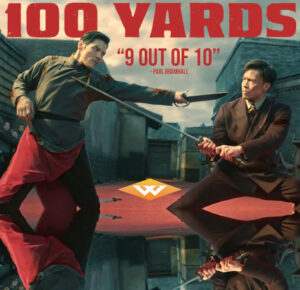
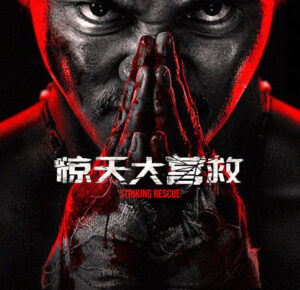
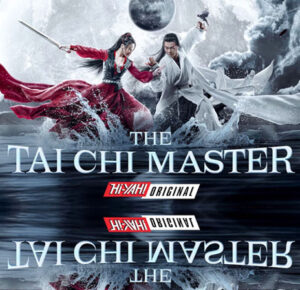

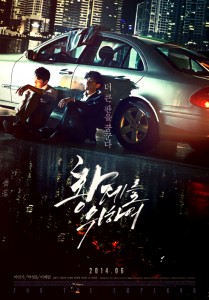






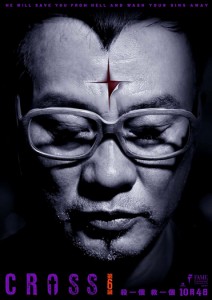











Be the 1st to Comment